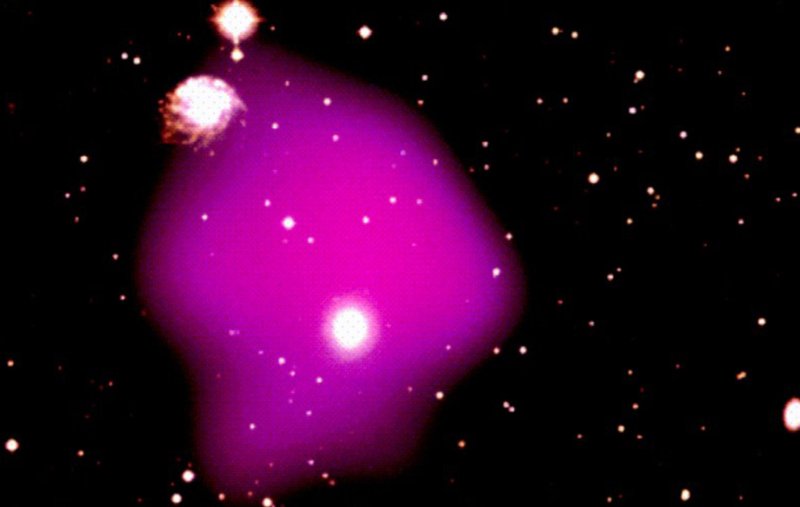A team of U.S. scientists has found the first direct evidence of the existence of 'dark matter,' a little-understood substance with a huge influence on gravity, the team's leader said in Boston, Massachusets on August 23, 2006. The NGC 2300 group of galaxies contains a large reservoir of million-degree gas glowing in X-rays. A false-color X-ray image of the hot gas is superimposed here on an optical picture of the galaxy group. Gravity from the galaxies alone is not enough to keep the gas in its place. There must be large quantities of dark matter whose gravity is preventing the gas from escaping. (UPI Photo/NASA) |
License Photo
CHICAGO, Feb. 13 (UPI) -- The University of Chicago says $17 million in funding from the National Science Foundation will help it research three basic cosmological puzzles.
The university's Kavli Institute for Cosmological Physics will use the funding to delve into the mysteries of dark energy, dark matter and cosmic inflation, a release from the school said Monday.
These are the three pillars of modern cosmological theory, "and none of them can be explained with physics that we know," institute director Michael Turner says. "They're all pointing to new physics."
Cosmic inflation proposes the universe expanded extremely rapidly in a tiny fraction of a second after the Big Bang, an expansion would explain some important questions Big Bang theory alone has been unable to answer, researchers said.
Dark matter, cosmologists say they suspect, may be a new form of matter consisting of something other than quarks, neutrons or protons.
Dark energy is thought to create something termed repulsive gravity, causing the expansion of the universe to accelerate, researchers said.
"People don't even get the term 'repulsive gravity' because the defining feature of gravity is that it's attractive," Turner says. "What do you mean, repulsive gravity? Do you mean the theory is repulsive?" he jokes.
The NSF funding will allow the Kavli institute to create a Physics Frontiers Center to study these cosmological conundrums, the university said.















